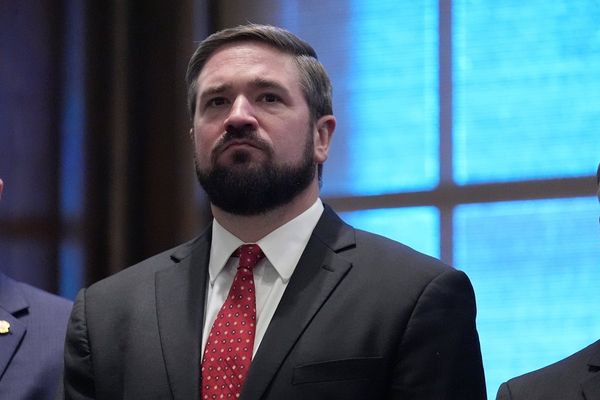Massive federal government debt from emergency pandemic spending could double in coming decades as borrowing costs rise and spending costs blow out.
Former Treasury economist Stephen Anthony predicts net debt could rocket from the current $750 billion to $1.7 trillion by 2032-33 as future budgets are weighed down by commitments for defence spending, the National Disability Insurance Scheme (NDIS), aged care and unfunded public sector superannuation liabilities.
Now the chief economist at Macroeconomics Advisory, Mr Anthony says pre-election "cash splash" spending in next week's federal budget risks a switch to fiscal austerity in coming years without restraint and reform.
"All of this combined spending requires significant structural reform. None of that is really factored into the budget that we're looking at."
"So we have a very serious set of issues that the government that is elected in May will have to deal with."
Significant reform needed to dodge savage spending cuts
With the federal budget less than a week away, Treasurer Josh Frydenberg maintains that debt, now forecast to peak at under $1 trillion, is manageable.
But Mr Anthony warned that surging inflation around the world, particularly in the United States, will eventually push global interest rates higher and pressure the Commonwealth's currently near-zero borrowing costs.
"Therefore, we should see the weighted average cost of borrowing for the Commonwealth of Australia over the next five or six years rise by at least that, and this big structural deficit that underpins our budget is going to further exacerbate the stresses that we face."
Mr Anthony said regardless of who wins the May election, significant reform will be necessary to avoid savage spending cuts to rein in a potential debt crisis.
Rate hike 'plausible'
Global bond rates have been rising this year with inflation becoming more entrenched rather than transitory.
Major central banks including the US Federal Reserve have commenced tightening cycles, with chairman Jerome Powell signalling as many as six rate hikes this year to tame inflation.
Reserve Bank of Australia governor Philip Lowe maintains a rate rise this year is "plausible" while pledging to be patient until the official unemployment rate falls below 4 per cent and so far elusive wages growth materialises.
The federal government's debt bill was fuelled by $314 billion in emergency pandemic spending such as JobKeeper as the national economy was forcibly shut down during the pandemic.







